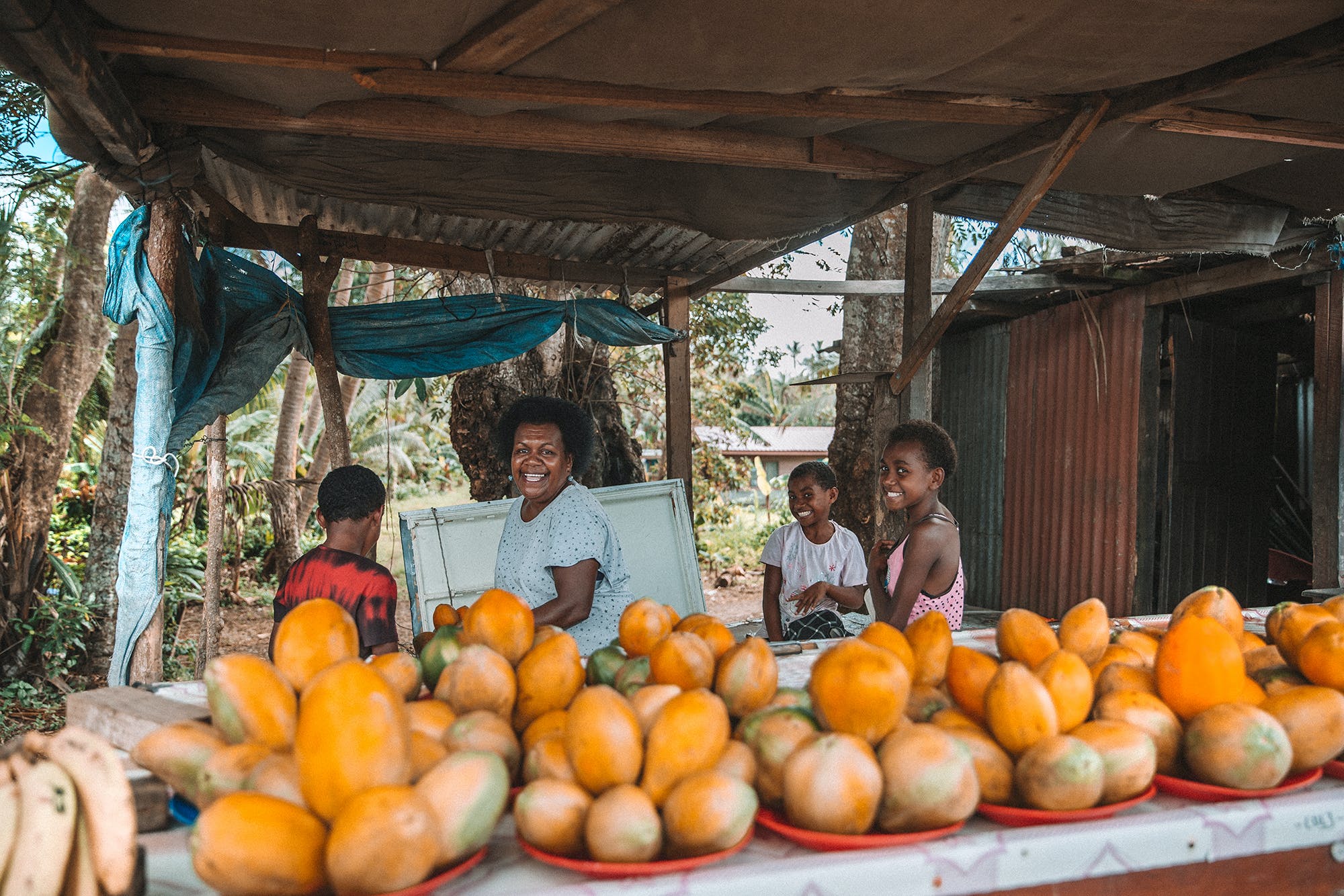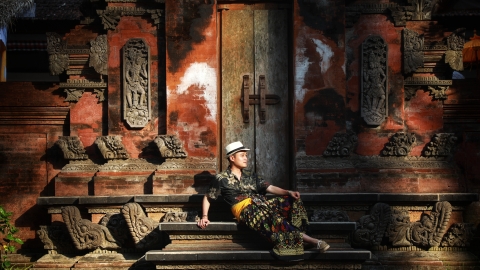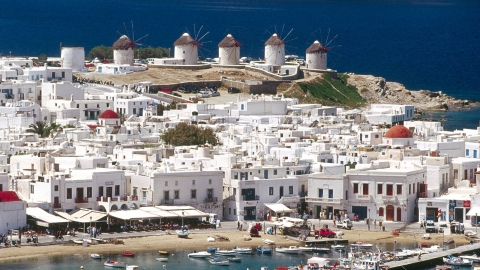Green mountains and clear waters
Fiji is an archipelago located in the middle of the Pacific Ocean, with a hot and humid climate year-round, blue seas, white sands, and stunning coral reefs. Situated 2,000 km from New Zealand, and comprising over 300 islands of varying sizes, Fiji is considered a "paradise of islands," comparable to Hawaii in the United States, with an average temperature of 25°C.oC and the sea water temperature always remain at 27°C.oC is ideal for beach activities. In winter, temperatures may drop but never below 18°C.oC. Therefore, for those wishing to travel or vacation in Fiji, any season of the year is ideal.
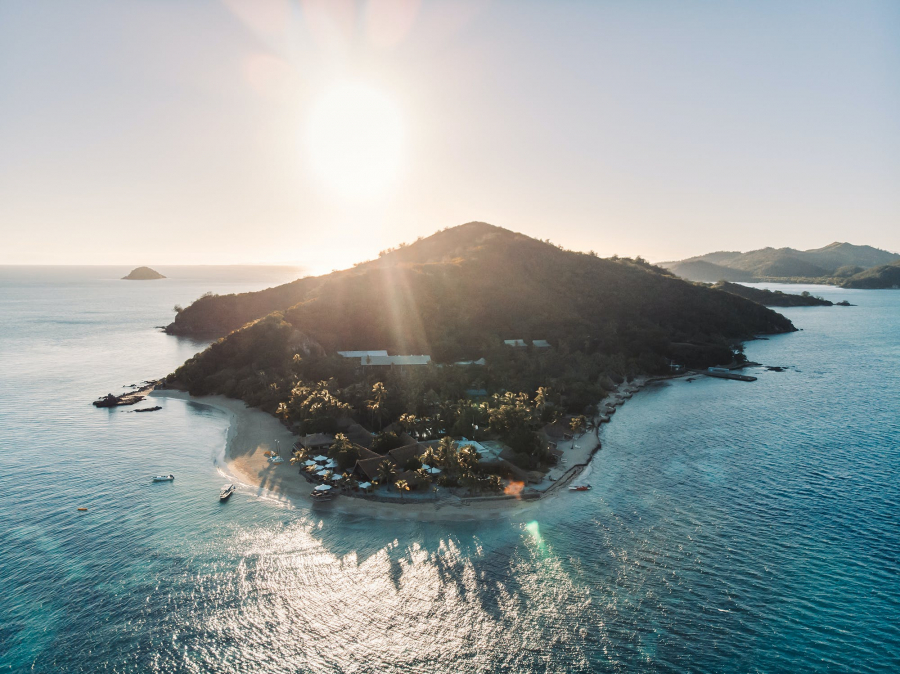
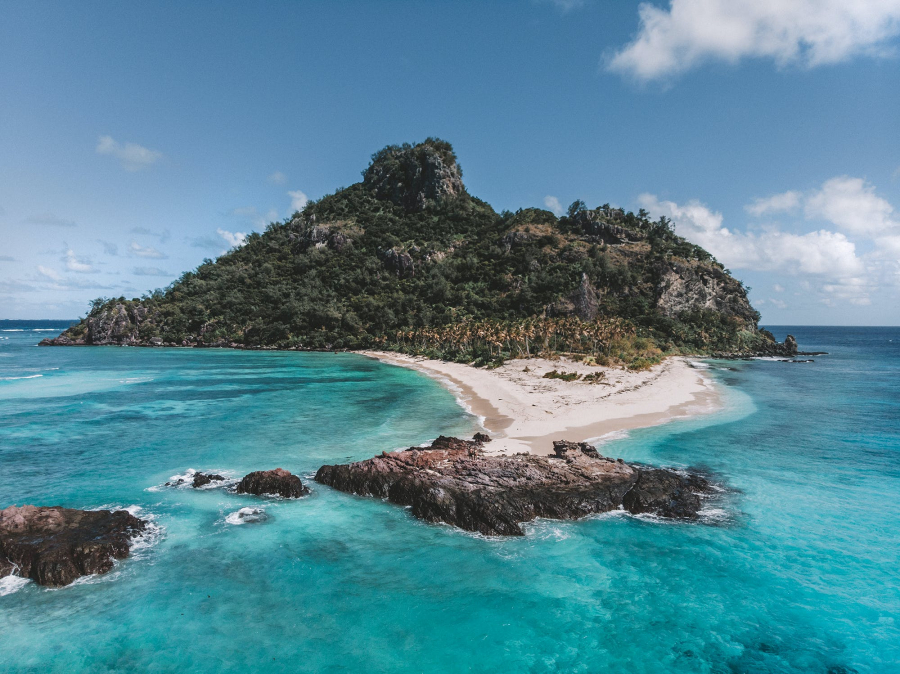
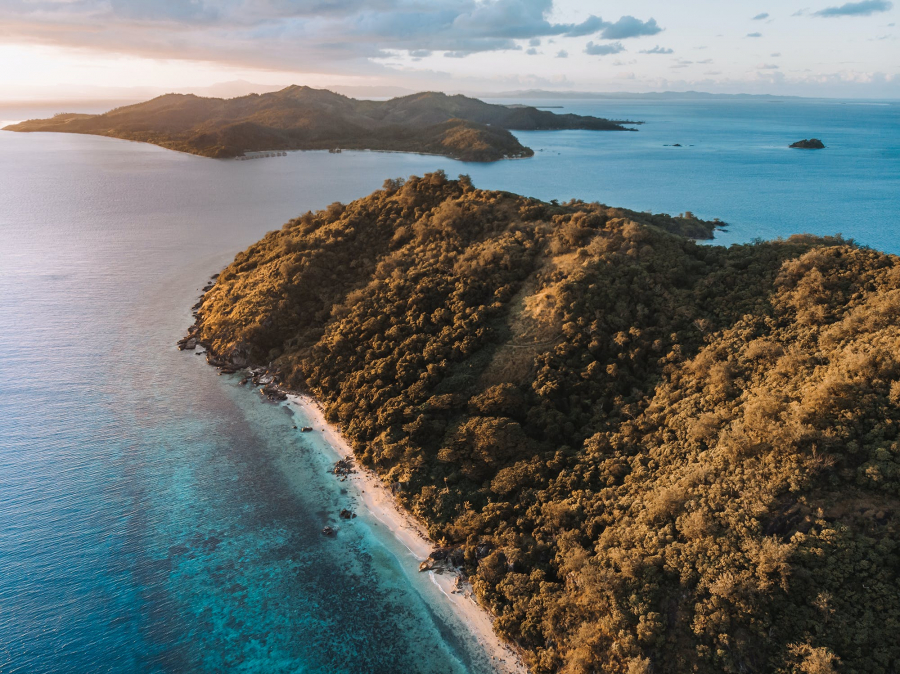
The crystal-clear turquoise waters, pristine white sand, and lush tropical forests visible from the boat that took me to Castaway Island truly captivated me with their stunning beauty. Perhaps because Fiji boasts so many small islands, none are overcrowded with tourists, and the scenery everywhere is incredibly peaceful and picturesque.
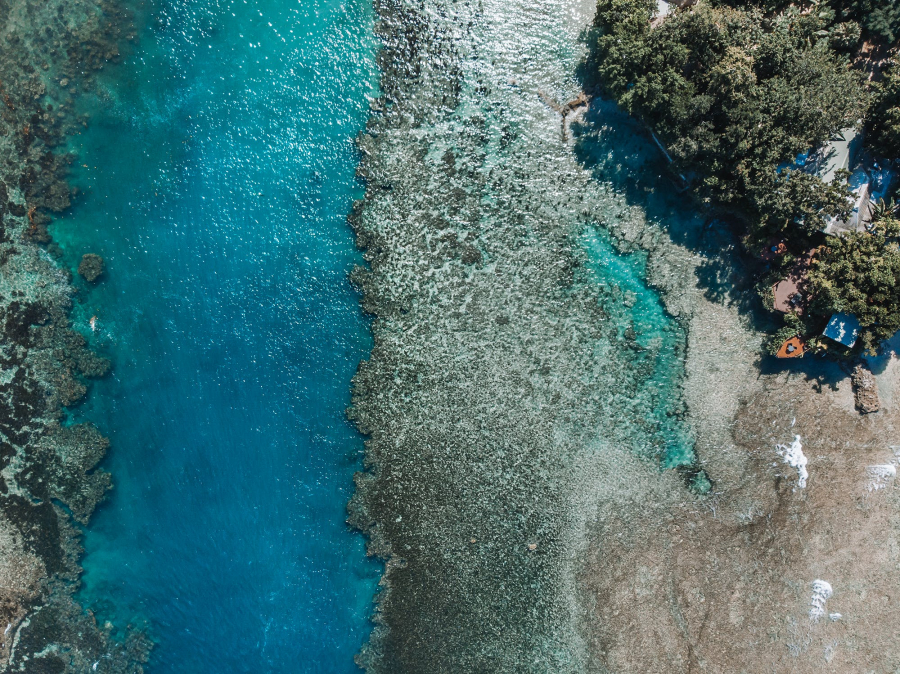
I chose Castaway Island from the Fiji archipelago, and it was a good choice. Located relatively close to Nadi (where the international airport is located), Castaway is known for its affordable prices, easy transportation, vibrant atmosphere, and especially for being the filming location of the famous movie "Cast Away" starring Tom Hanks. Besides slow boats, visitors can choose to take a sea taxi or helicopter, but these are much more expensive. Each island in the cluster has at least one or two resorts, most of which are quite affordable, including food and entertainment, but there aren't many high-end options.
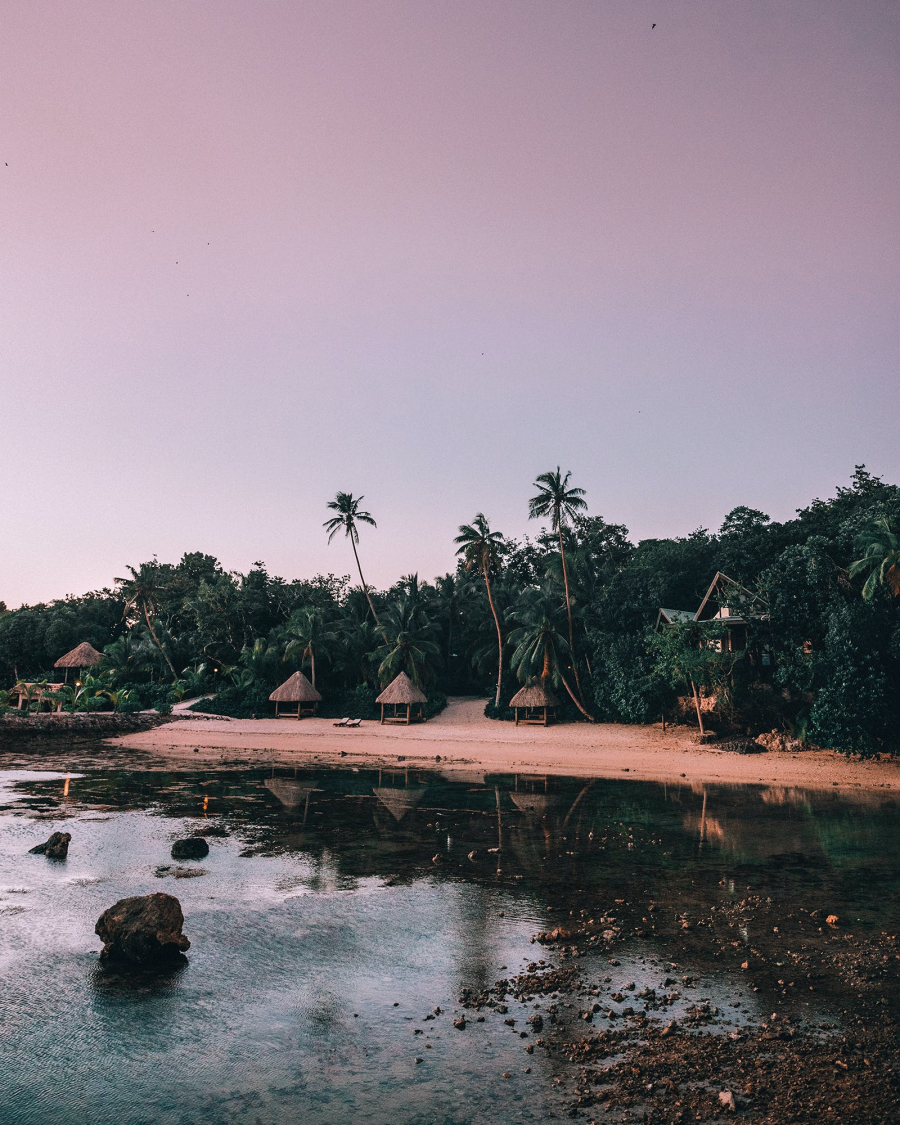
Nadi International Airport is simple and old-fashioned, but all the staff are smiling brightly and chatting happily with tourists. The taxi driver, the traffic policeman, the ferry ticket seller... everyone is very friendly, with a sincere attitude and genuine affection, not just a polite smile for strangers. It was the same on Castaway Island. The resort owner smiled and sent her car to pick me and some other guests up at the ferry terminal. Although called a "resort," the level is quite basic, feeling no different from a homestay right by the sea. White sand underfoot, blue sky above, expansive scenery, strong winds, swirling clouds high above, enveloping the dormant volcanic peaks in the distance.
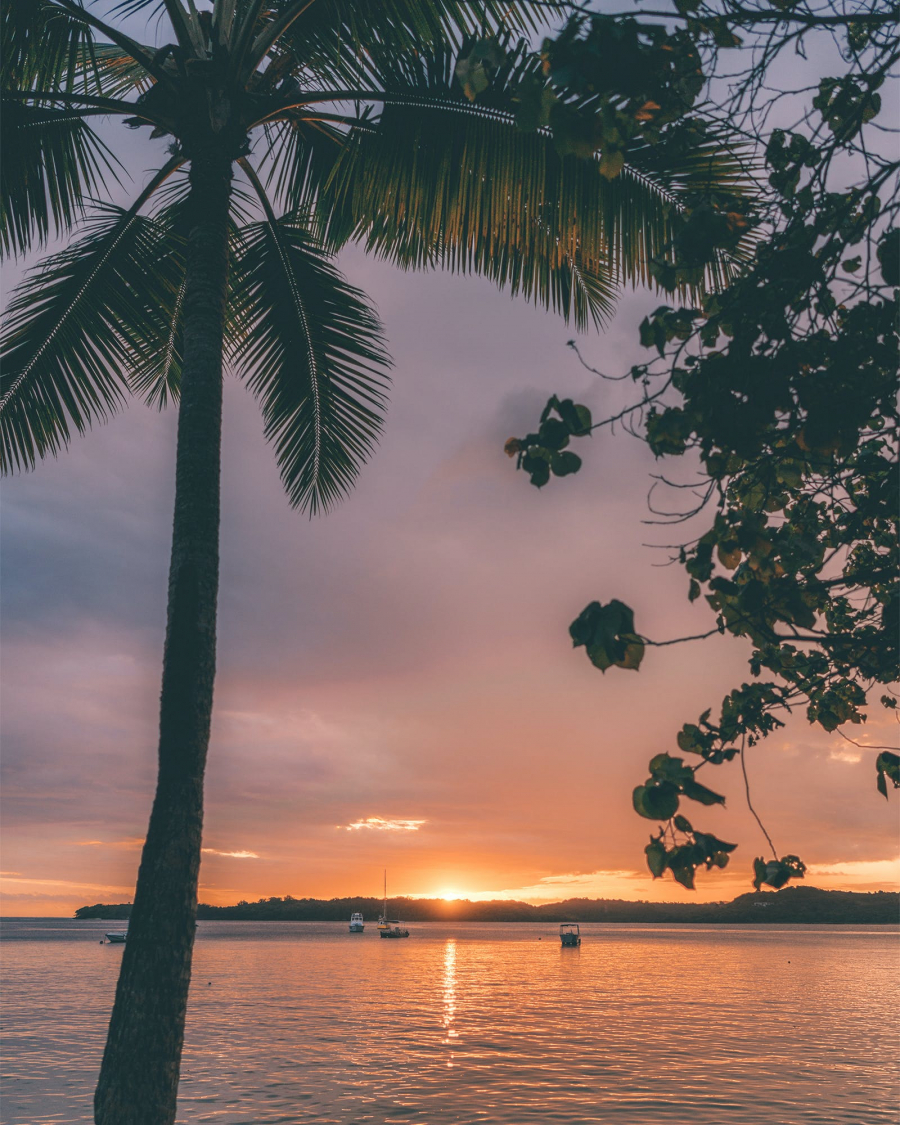
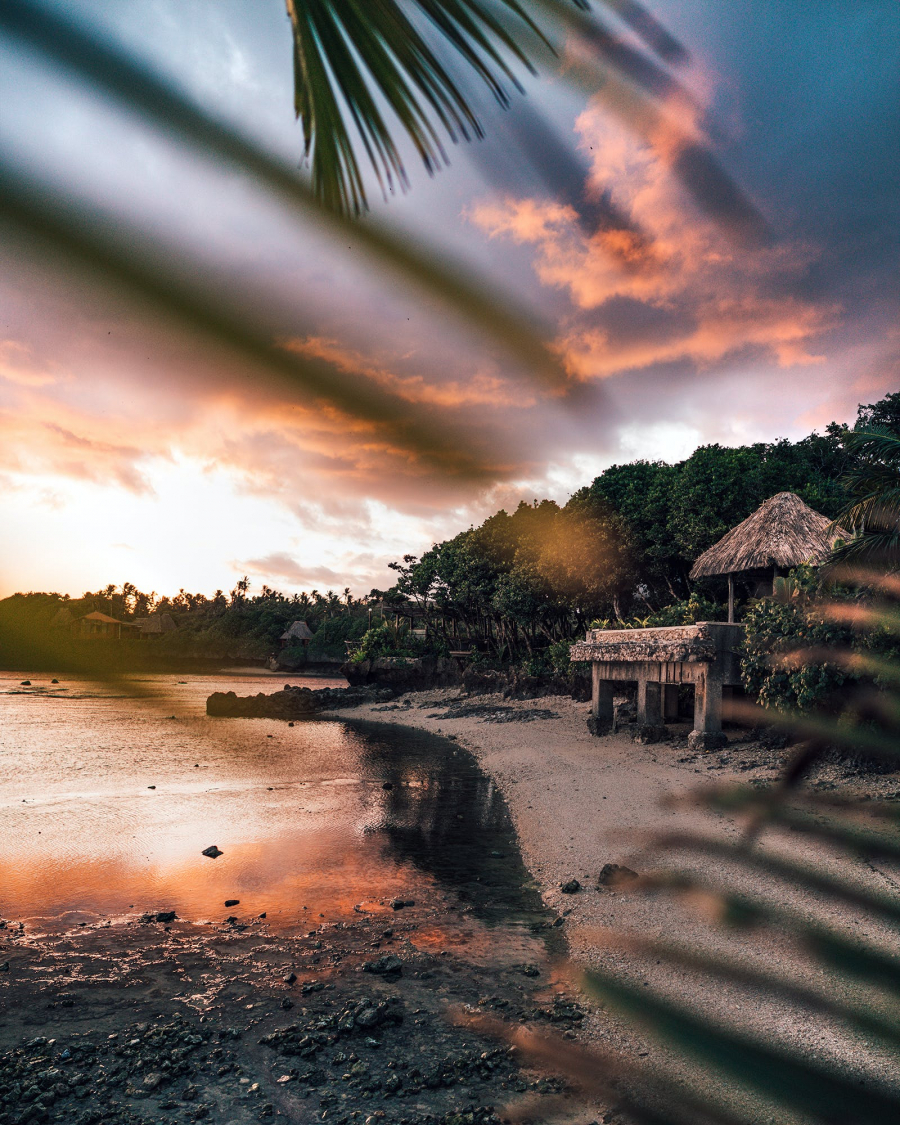
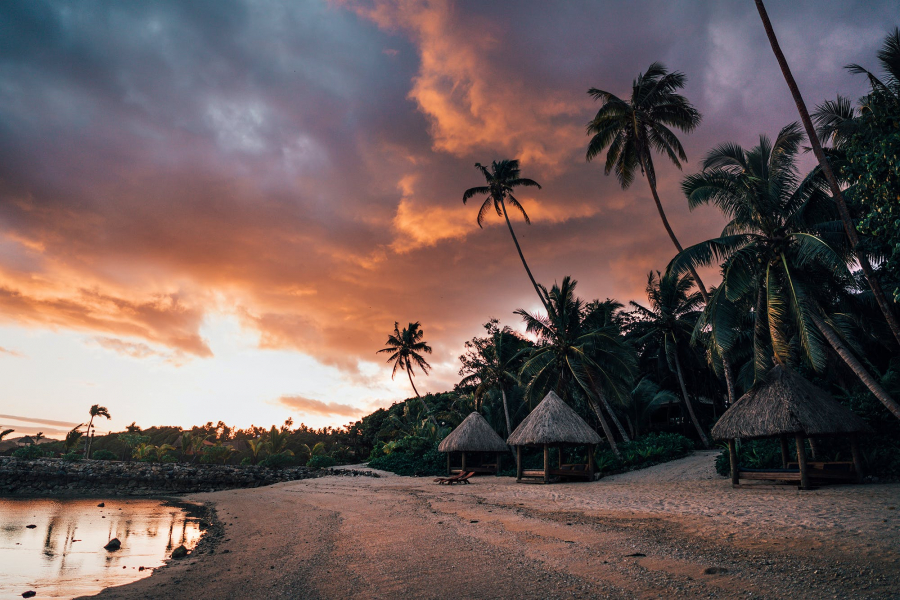
I went to the beach, chose a quiet spot, stretched out, and relaxed after a long journey. It was the same blue sky, white clouds, clear water, fine sand, and cool green coconut trees – how was it different from Phu Quoc, Vung Tau, or Nha Trang? Quite different. Vietnamese beaches have a certain warmth and gentleness, enthusiastically welcoming visitors with their romantic and poetic scenery. The islands of Fiji, however, offer a sense of awe, half soft and gentle, as if wanting to befriend, half fierce, as if challenging visitors to embark on an adventure of discovery. The sunset cast a fiery red glow, painting the sky with contrasting yet magnificent hues. In the courtyard, torches were lit, their flickering flames breaking the tranquil atmosphere with music and laughter. The life of this volcanic island began to erupt in the powerful movements of Fijian music and traditional dance.
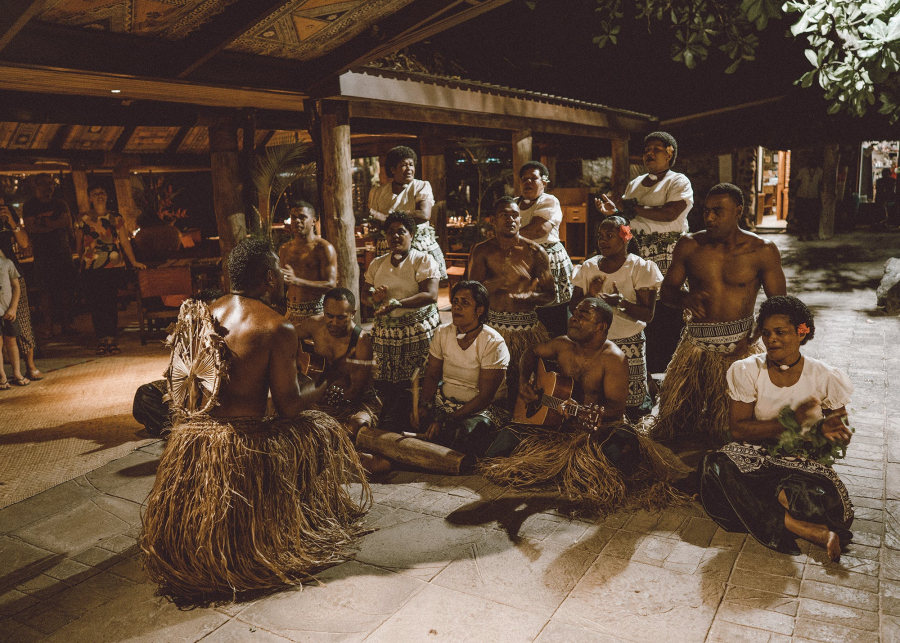
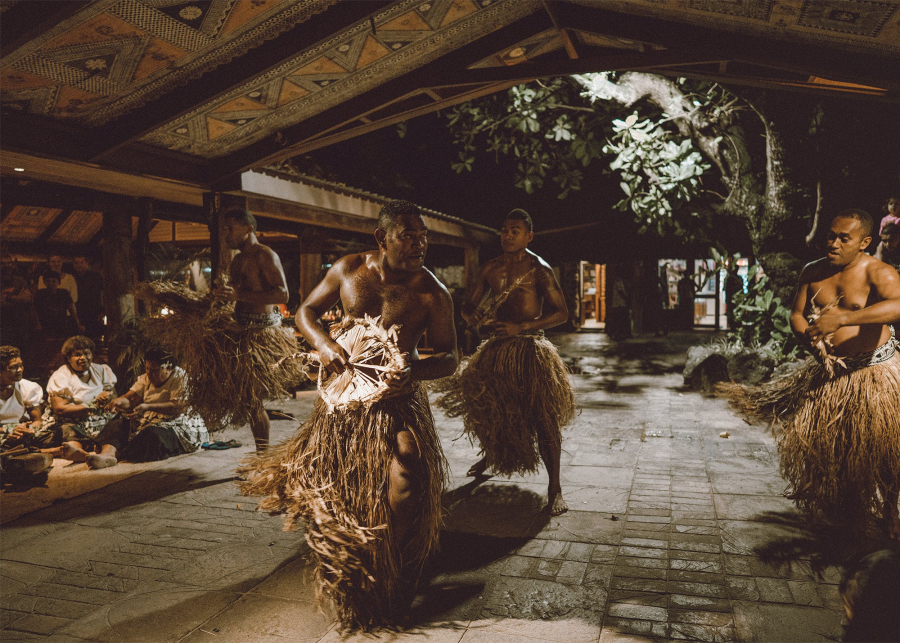
East of the sun
Fiji is located on the International Date Line and uses the GMT+12 time zone, which is 3 hours ahead of Japan, as Japan uses the GMT+9 time zone. Therefore, anyone visiting Fiji tries to wake up early to be among the first people on Earth to see the sunrise.
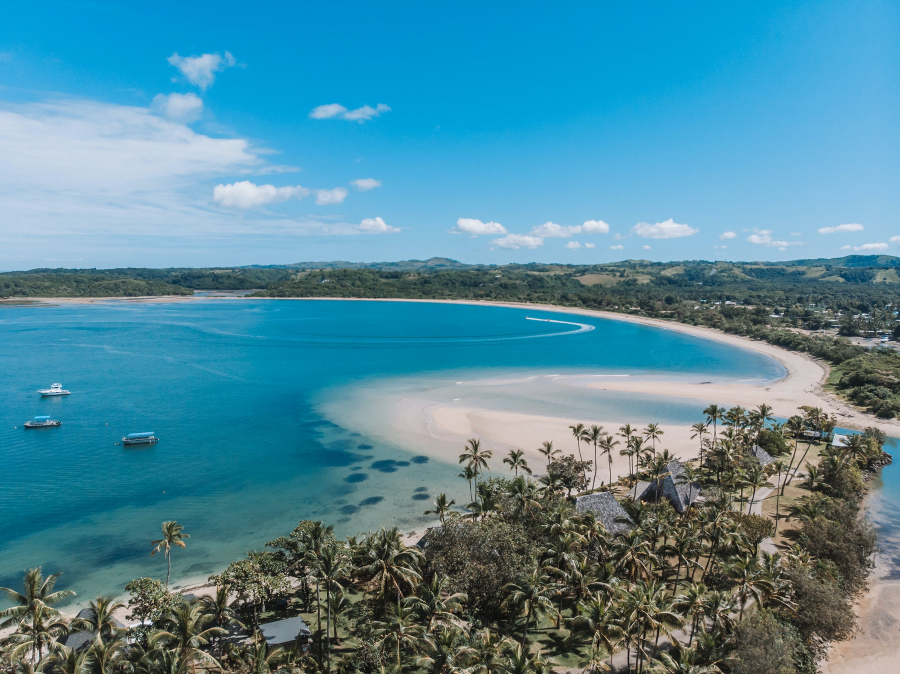
I walked barefoot on the sand. The sand here was very white and clean, the seawater crystal clear, with no seawalls or drainage ditches, no sewage, no one littering, and no one fishing. Before me stretched a long, curving, smooth beach like a crescent moon, devoid of crowded shops and stalls, only seaweed washed ashore and fresh, tender sea morning glory swaying in the early morning breeze. The waves crashed against the sand with a thunderous roar, a lively, rhythmic beat like war drums, carrying the salty scent of the sea. As I said before, the sea here isn't gentle and soothing like the sea in Vietnam...
Of course, when visiting this "paradise island nation," swimming in the sea is a must. But besides that, there are many other recreational activities such as fishing, kayaking, surfing, swimming with dolphins, or even diving with... sharks. Those who want to learn more about Fiji's nature can sign up for several tours to visit botanical gardens, nature exploration tours, or birdwatching tours on the islands...
Fiji Smile
Fiji is beautiful, but the world is not lacking in tropical islands dubbed "paradise holidays." What is it about Fiji that captivates tourists so much? It's the smiles of Fijians.
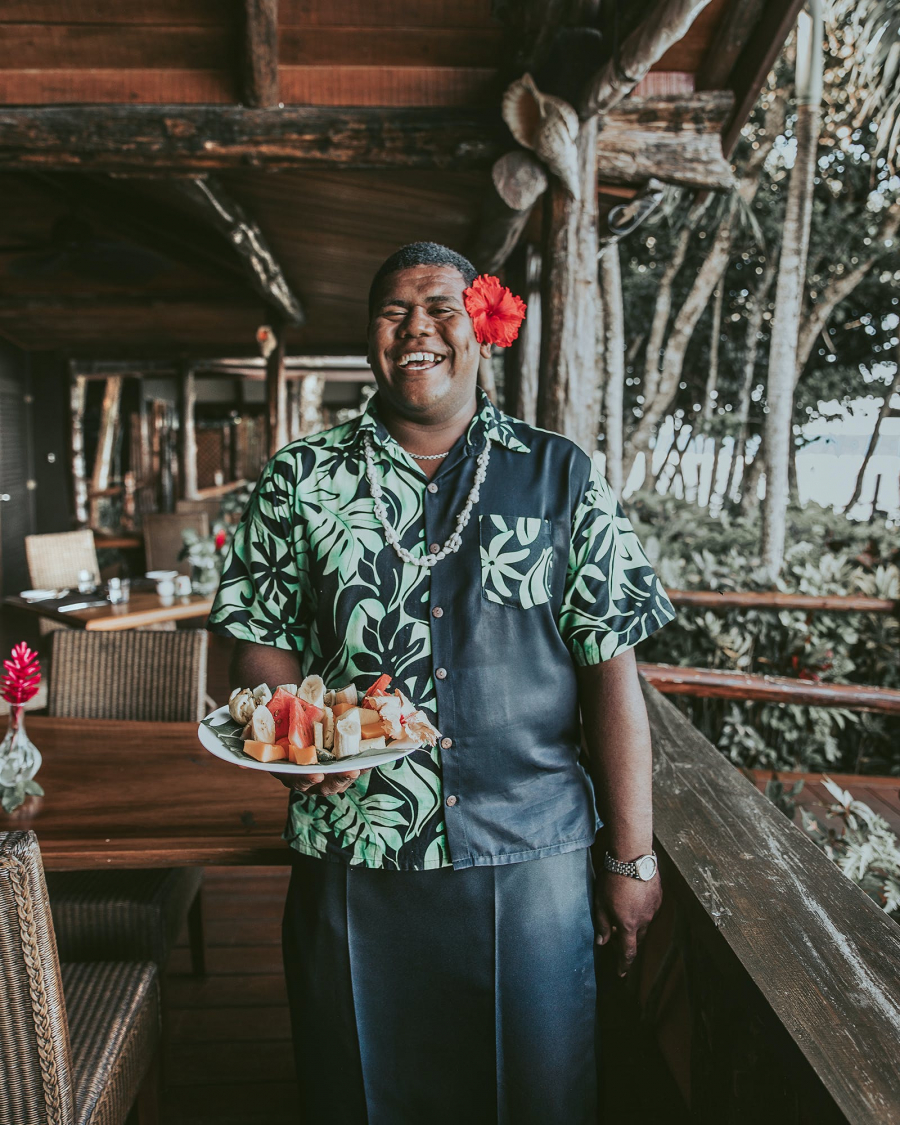
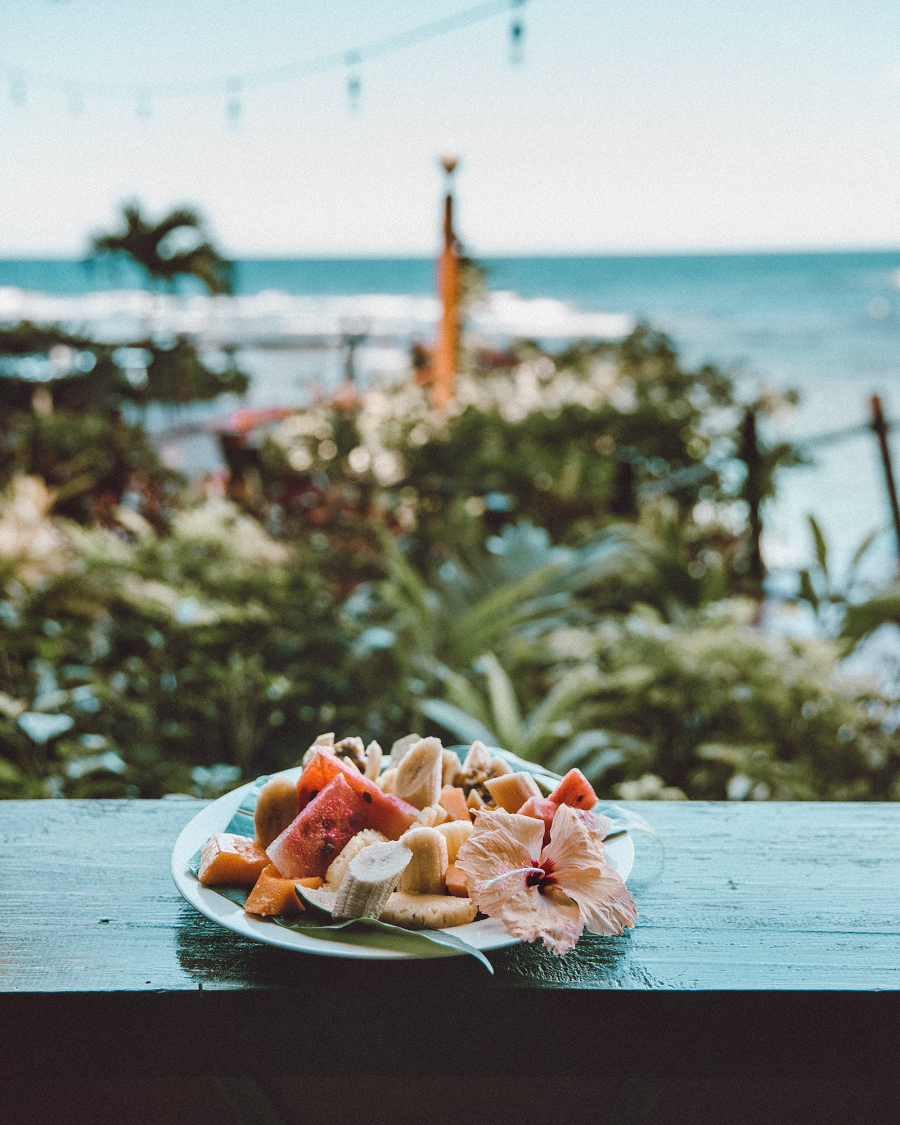
Everyone was incredibly friendly and welcoming to all foreigners. I heard "Bula!" (a local greeting) everywhere. Wherever I went, I was greeted enthusiastically, asked questions, and requested to take photos with them. Once, I stopped at a papaya stall intending to buy just a few, but ended up carrying a whole heavy bag home because the women there were so incredibly enthusiastic!
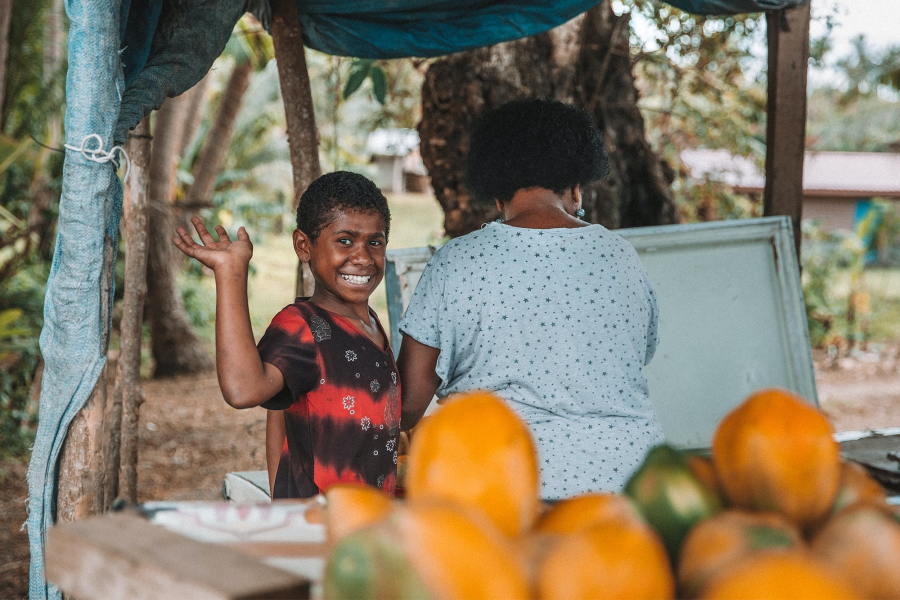
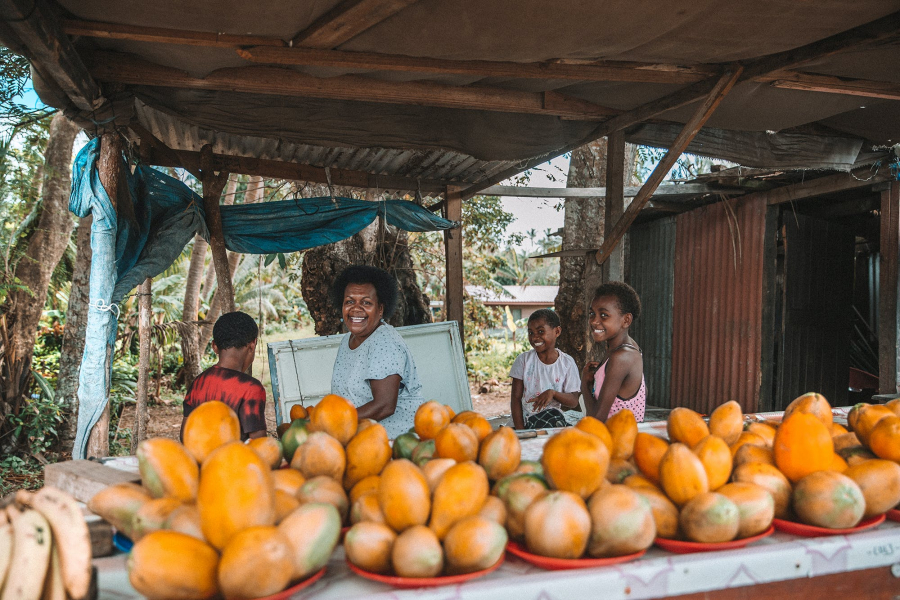
The fruits and seafood in Fiji are delicious, very fresh, and contain no preservatives or freezing. The dishes have a local flavor but also reflect influences from European, Chinese, Polynesian, and Indian cultures. Notable dishes include Kokoda (raw fish marinated in coconut milk and lime), Kassaua (a dish combining roasted cassava, coconut, mashed plantain, and cream), and Fiji Bitter – a signature Fijian beer. For a Vietnamese person like me, these tropical specialties, while delicious, aren't particularly rare. But for Western tourists, it's truly a paradise, not only for sunbathing and relaxation, but also for enjoying the cuisine.
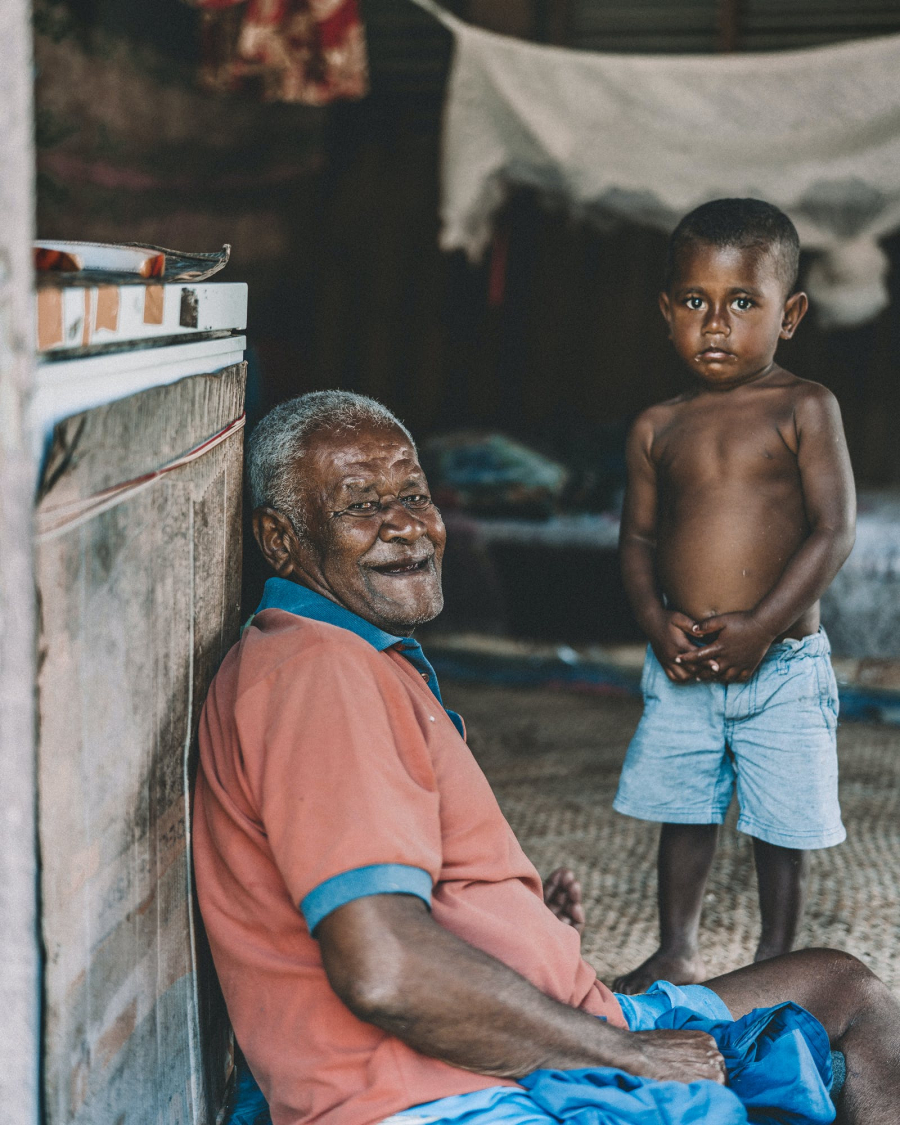
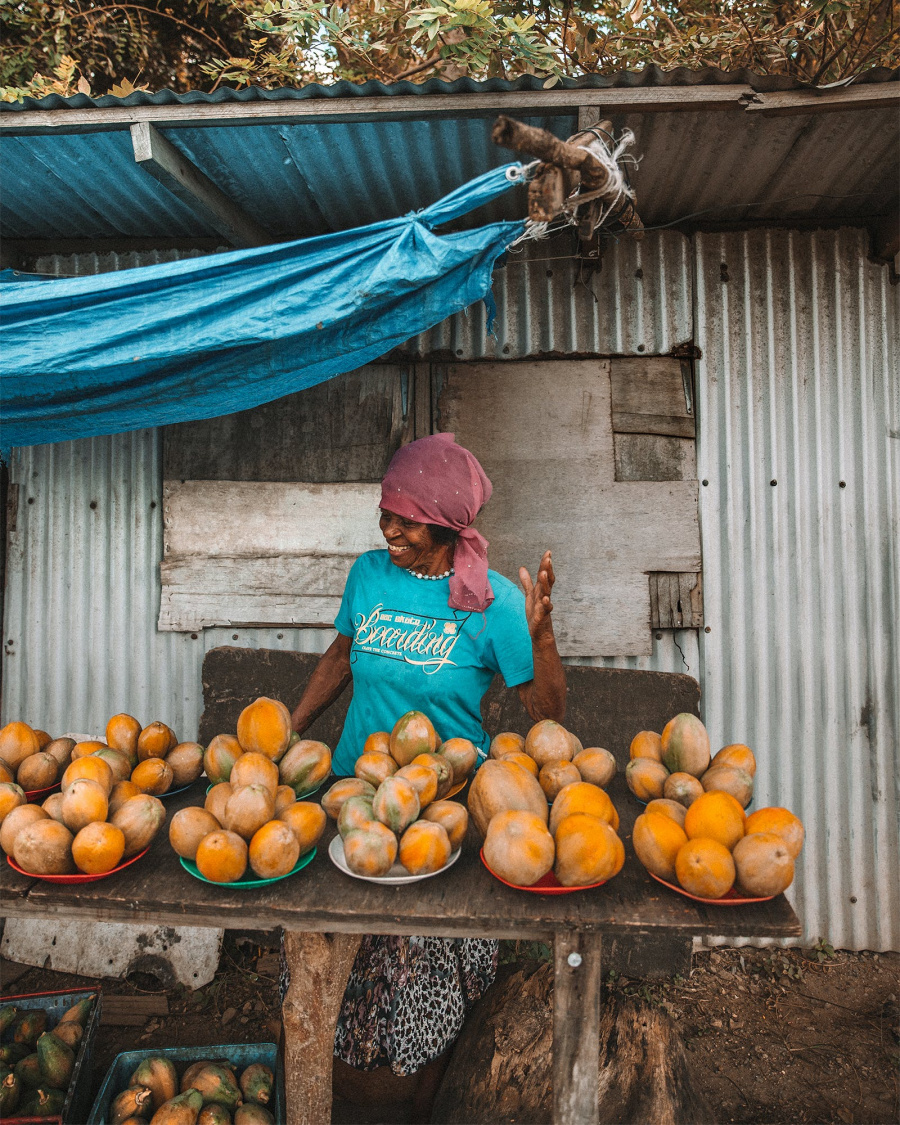
Infrastructure in Fiji is still underdeveloped, with many areas even worse than Vietnam. But why are the people of Fiji always so optimistic, living at a slow pace, without the hustle and bustle? Thinking about it, living slowly, eating well, sunbathing, and being in harmony with nature – isn't that the "happiness" that tourists – mostly from more developed countries – seek in Fiji? Ultimately, Fiji isn't necessarily less developed than other countries, when the lifestyle they enjoy is precisely the goal many of us are striving to achieve...
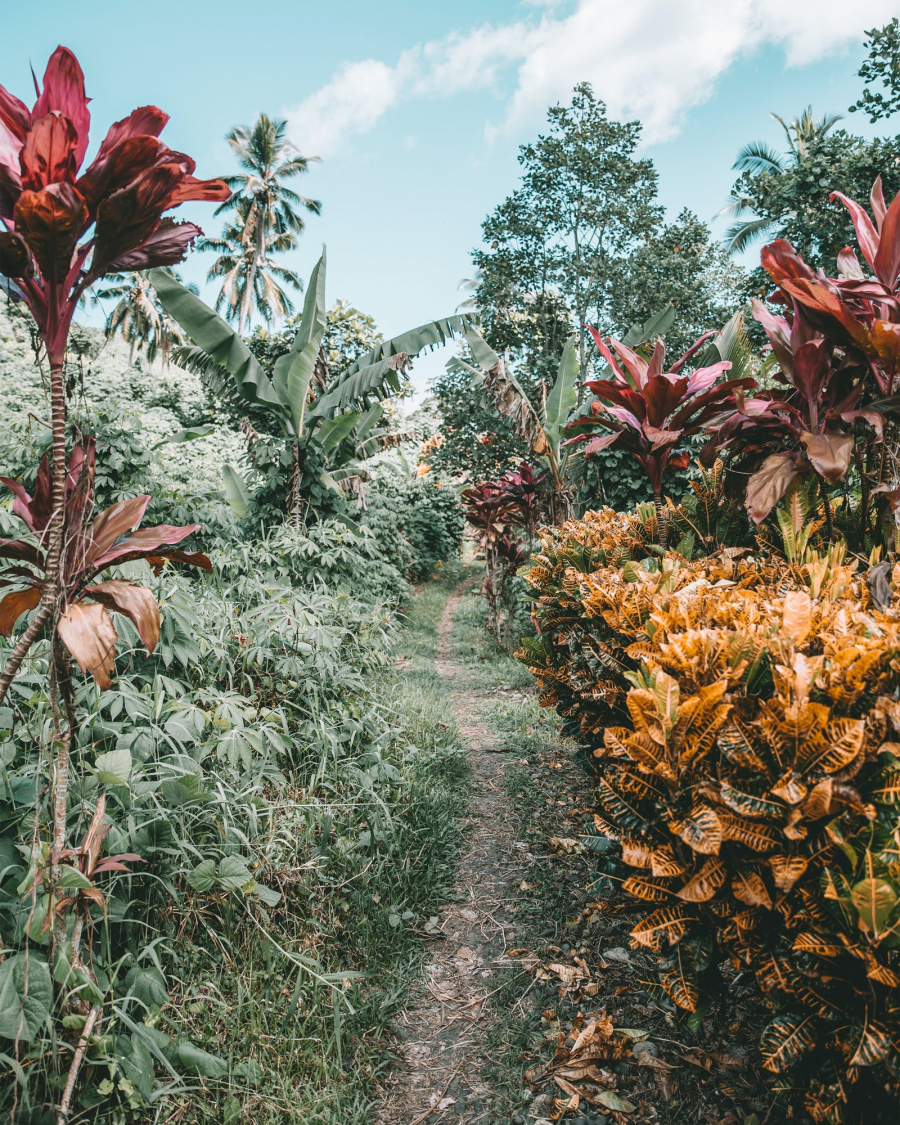

 VI
VI EN
EN



